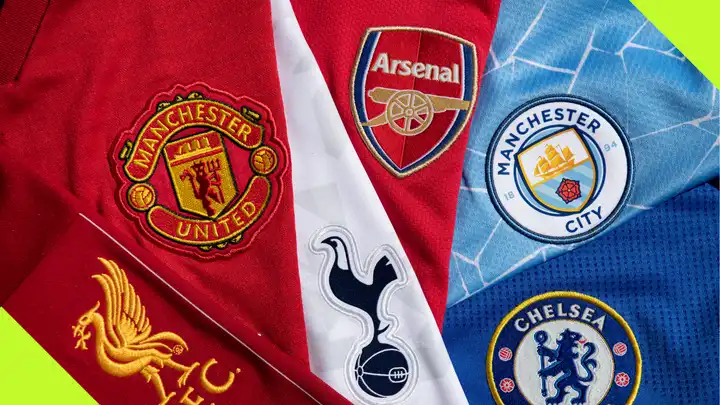🚨💸 Premier League prize money table confirmed 💸🚨 With one Big Six club earning £40million MORE than another 😳

The Premier League’s prize money distribution has long been a topic of debate among football fans and pundits. The latest figures reveal a stark contrast between the riches of the top-flight clubs and the relative poverty of those in the English Football League (EFL). According to the latest figures, Liverpool topped the list with a staggering £56.4 million in prize money, while Southampton brought up the rear with a paltry £2.8 million.
However, what’s even more striking is the comparison with the Championship. For the 2024-25 season, clubs in the second tier received just below £11 million, which includes a basic award amount and solidarity payments from the Premier League. This figure is remarkably close to the amount received by Tottenham, who finished 17th in the Premier League and earned £11.3 million.
The disparity in prize money distribution raises questions about the financial sustainability of clubs in the EFL. While Premier League clubs are raking in tens of millions of pounds, their counterparts in the lower divisions are struggling to make ends meet. The financial struggles of EFL clubs are well-documented, with many facing uncertainty and instability due to limited resources.
The current system of prize money distribution seems to perpetuate the existing inequalities between the Premier League and the EFL. The top-flight clubs receive a disproportionate amount of prize money, which further widens the financial gap between them and the lower divisions. This makes it challenging for EFL clubs to compete with their Premier League counterparts, both on and off the pitch.
How much every Premier League team earned in prize money
1st: Liverpool – £56.4m
2nd: Arsenal – £53.5m
3rd: Manchester City – £50.7m
4th: Chelsea – £47.9m
5th: Newcastle – £45.1m
6th: Aston Villa – £42.2m
7th: Nottingham Forest – £39.4m
8th: Brighton – £36.7m
9th: Bournemouth: – £33.8m
10th: Brentford – £31m
11th: Fulham – £28.2m
12th: Crystal Palace – £25.4m
13th: Everton – £22.5m
14th: West Ham – £19.7m
15th: Manchester United – £16.9m
16th: Wolves – £14m
17th: Tottenham – £11.3m
18th: Leicester – £8.5m
19th: Ipswich – £5.7m
20th: Southampton – £2.8m
BUT BY COMPARISON
For the 2024-25 season, clubs in the Championship received just below **£11m**. This figure includes a basic award amount (50%) and solidarity payments (50%) from the Premier League.
ABSOLUTE JOKE REALLY GIVEN THE STATE OF SOME EFL CLUB FINANCES
The solidarity payments made to EFL clubs are a welcome gesture, but they are a drop in the ocean compared to the vast sums earned by Premier League clubs. The £11 million received by Championship clubs is a tiny fraction of the total prize money distributed by the Premier League. It’s clear that the current system needs a rethink to ensure that EFL clubs receive a more equitable share of the riches.
The financial struggles of EFL clubs have real-world consequences. Many clubs are forced to operate on shoestring budgets, which can lead to uncertainty and instability. Players and staff often go unpaid or underpaid, and the clubs’ ability to invest in infrastructure and talent is severely limited. This can create a vicious cycle of poverty and decline, which is difficult to escape.
In contrast, Premier League clubs have the resources to attract and retain top talent, invest in state-of-the-art infrastructure, and build strong squads. The financial disparity between the Premier League and the EFL is not just a matter of numbers; it has a direct impact on the competitiveness and sustainability of clubs in the lower divisions.
The Premier League’s prize money distribution system needs to be reevaluated to ensure that EFL clubs receive a fair share of the riches. This could involve increasing the solidarity payments or introducing a more progressive distribution system that rewards clubs for their achievements. Whatever the solution, it’s clear that something needs to change to address the financial inequalities between the Premier League and the EFL.
Ultimately, the financial sustainability of EFL clubs is crucial to the health of the English football pyramid. The Premier League’s success is built on the back of the EFL, and it’s essential that the top-flight clubs recognize their responsibility to support their counterparts in the lower divisions. By working together and finding a more equitable solution, we can ensure that English football remains strong and competitive at all levels.
The current system is unsustainable and unfair, and it’s time for a change. The Premier League and the EFL need to work together to find a solution that benefits all clubs, regardless of their division. By doing so, we can create a more level playing field and ensure that English football remains a vibrant and competitive sport for generations to come.